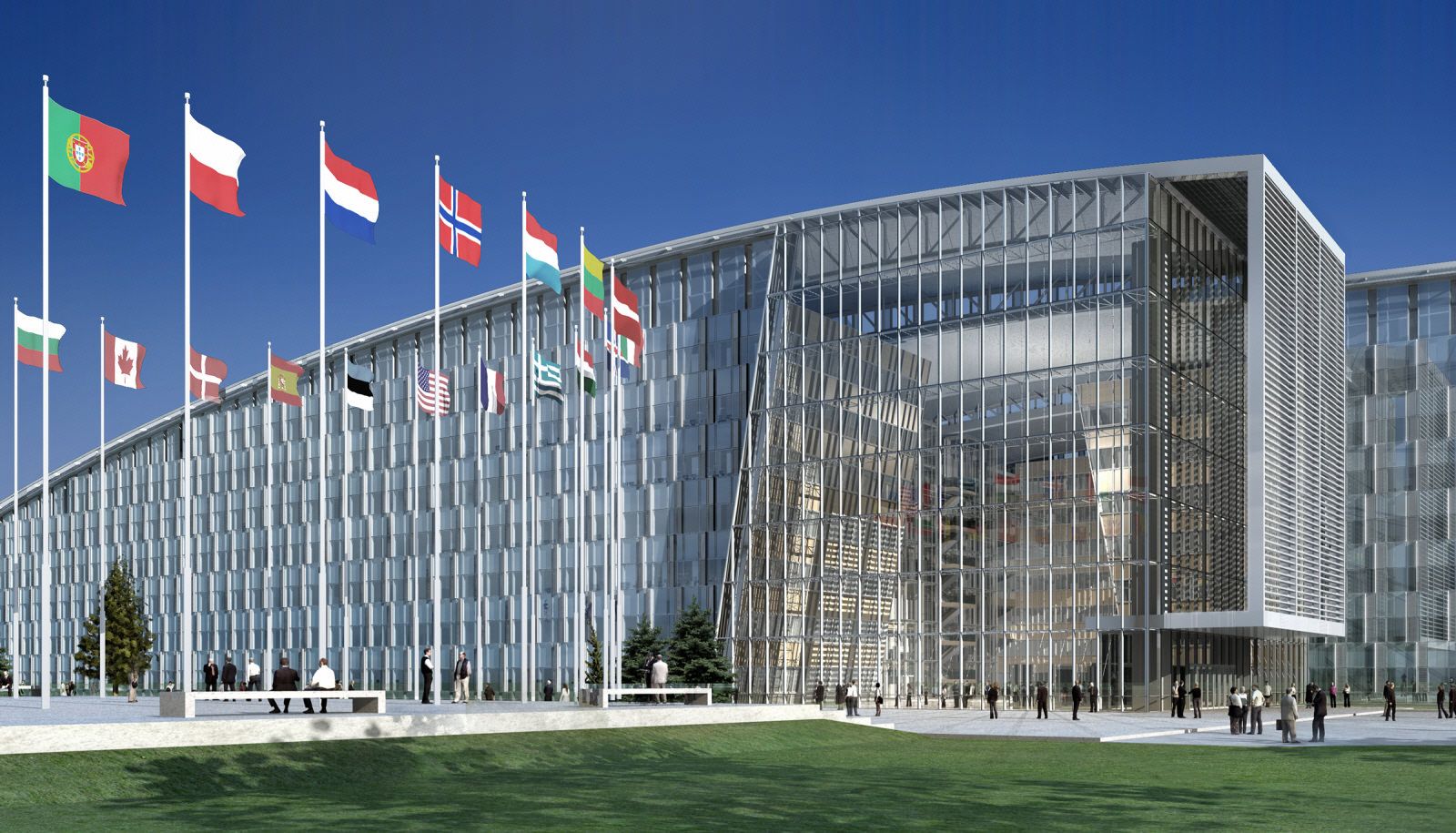
NATO Mutual Defense Pact to Add Space Attacks
June 14, 2021 (abc.net.au)
• Around 2,000 satellites orbit the Earth, and over half of them are operated by NATO countries, ensuring everything from mobile phone and banking services to weather forecasts. Military commanders rely on some of these satellites to navigate, communicate, share intelligence and detect missile launches. Around 80 countries have satellites, with private companies are moving in as well. In the 1980s, just a fraction of NATO’s communications was via satellite. Today, it’s at least 40 per cent.
• Article 5 of NATO’s founding treaty states that attacks on any one of the 30 NATO allies will be considered an attack on all of them. NATO’s collective defense clause has applied to military attacks on land, sea, or in the air, and more recently in cyberspace. It has only been activated once, when the members rallied behind the US following the September 11, 2001 attacks.
• Many NATO member countries are concerned about what they say is increasingly aggressive behavior in space by China and Russia. In December 2019, NATO leaders declared space to be the alliance’s “fifth domain” of operations, after land, sea, air and cyberspace. NATO Secretary-General Jens Stoltenberg (pictured above) said that “any attack on space capabilities, like satellites and so on or attacks from space, will or could trigger Article 5 …which states that an attack on one will be regarded as an attack on all – that we all will respond.”
• Former US President Donald Trump raised deep concern among US allies, notably those bordering Russia like Estonia, Latvia, Lithuania and Poland, when he suggested that he might not rally to their side if they didn’t boost their defense budgets. Since occupying the office, Biden has tried to reassure them of America’s commitment to its European allies. Trump also ordered the creation of the US Space Force, which was launched in 2019. “Space is the world’s new war-fighting domain,” said Trump.

NATO leaders are set to expand the use of their all-for-one, one-for-all, collective

defence clause to include attacks in space, the military organisation’s top civilian official says.
Article 5 of NATO’s founding treaty states that attacks on any one of the 30 allies will be considered an attack on all of them.
So far, it has only applied to military attacks on land, sea, or in the air, and more recently in cyberspace.
“I think it is important [with] our Article 5, which states that an attack on one will be regarded as an attack on all, that we all will respond,” NATO secretary-general Jens Stoltenberg said.

“We will make it clear at this summit that, of course, any attack on space capabilities like satellites and so on or attacks from space will or could trigger Article 5,” he said, a few hours before chairing a summit with US President Joe Biden and his counterparts.
counterparts.
Around 2,000 satellites orbit the Earth, over half operated by NATO countries, ensuring everything from mobile phone and banking services to weather forecasts.
Military commanders rely on some of them to navigate, communicate, share intelligence and detect missile launches.
In December 2019, NATO leaders declared space to be the alliance’s “fifth domain” of operations, after land, sea, air and cyberspace.
FAIR USE NOTICE: This page contains copyrighted material the use of which has not been specifically authorized by the copyright owner. ExoNews.org distributes this material for the purpose of news reporting, educational research, comment and criticism, constituting Fair Use under 17 U.S.C § 107. Please contact the Editor at ExoNews with any copyright issue.
attacks from space, China, communications, Donald Trump, European allies, mutual defense pact, NATO, NATO Secretary-General Jens Stoltenberg, Russia, satellites